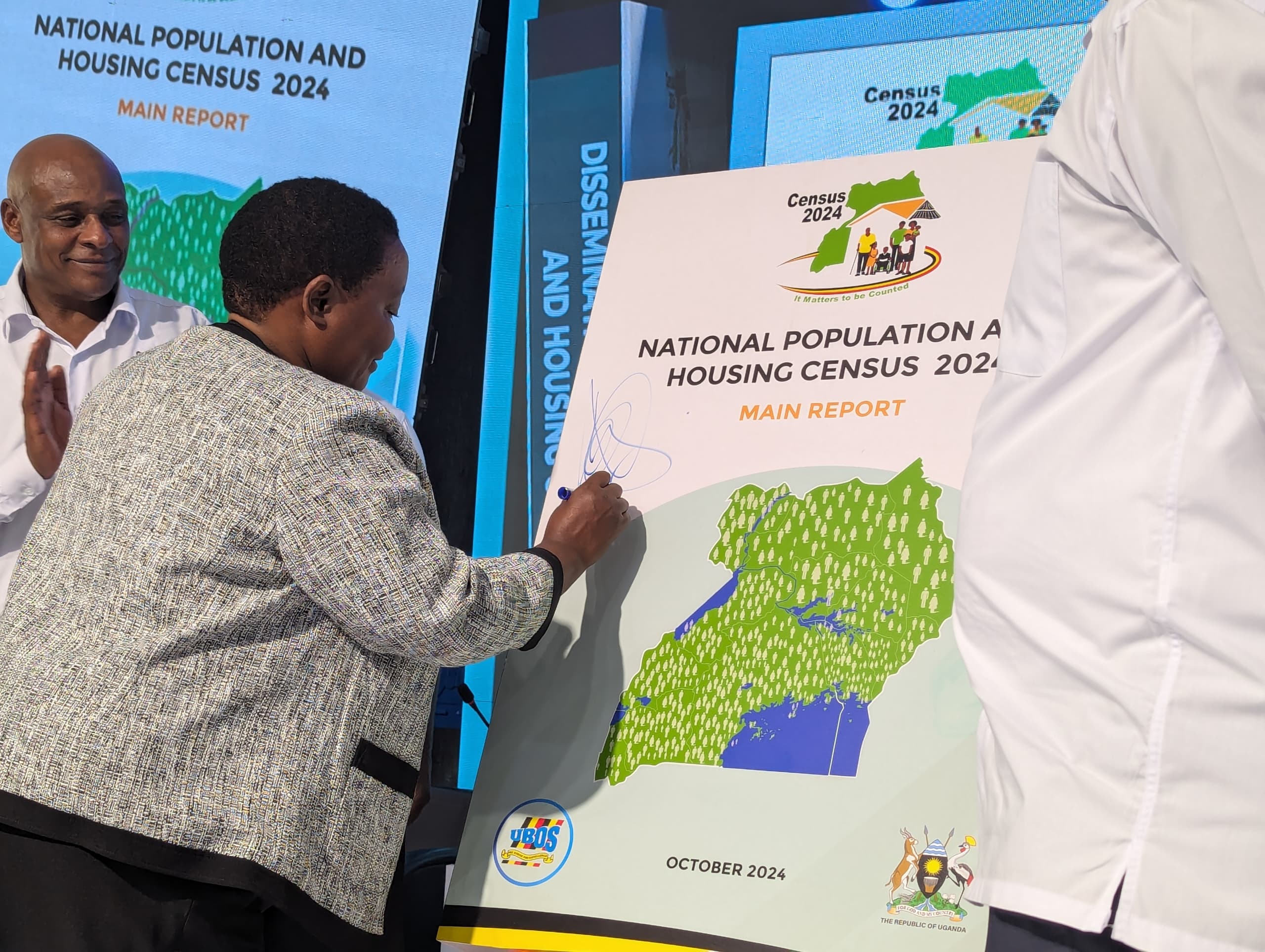
The IGG, Ms Beti Kamya, at Parliament in 2022. PHOTO/FILE
The Inspector General of Government, Ms Beti Olive Namisango Kamya, has announced that she will launch a probe into the Uganda Bureau of Statistics (Ubos) following the recent development that led to the release of the results of the 2024 National Population and Housing Census (NPHC) with errors.
Ubos was last Friday forced to withdraw the main NPHC from its website after the public castigated them over the errors they made in numbers of some of the tribes.
Figures released on Thursday last week that wrongly showed the population of Acholi as dropping from 2,131,443 to 1,941,913, while it displayed the Bagisu population as falling from 2,390,975 to 2,096,149, which caused an outrage on the microblogging X-platform (formerly Twitter) where the report’s authenticity was questioned.
Despite Ubos later rectifying the figures, Ms Kamya told reporters at the government-owned media centre yesterday that she would launch a probe into this.
“To be quite honest, I have also been reading in the paper the provisional results where the public had serious issues with Ubos and we shall definitely get involved in auditing not only the money, but also the processes ...” she said.
“They (Ubos) had 10 years to prepare this census… I can assure you that the Inspectorate of Government speaks with authority ..... and we shall carry out the probe. It was not long ago in around 2022 we investigated and forced some employees of Ubos to return Shs1b and as I speak 70 percent have returned it,” she added.
When contacted yesterday, Ubos senior Public Relations Officer Didacus Okoth said they were yet to receive any information from the IGG about the intended probe.
“For now, I don’t know anything,” he said.
Ubos, a government agency, mandated to ensure collection, analysis and publication of integrated, relevant, reliable and timely statistical information for the country, was last week on the spot over the errors in some of the tribes.
Earlier, while meeting journalists in Kampala, Ubos Executive Director Chris Mukiza explained that the errors were because the population figures for the Langi were given to the Acholi, while for the Acholi were given to the Bakiga and that of the Bakiga were given to the Bagisu and for the Bagisu given to the Langi.
After correction, the figures now indicate that the population for Bagisu increased from 1,647,382 in 2014 to 2,096,149, while the Acholi rose from 1,470,884 to 1,941,913 people.
The withdrawn report had also wrongly indicated the population of the Bakiga as 1,470,884 in 2014 instead of 2,390,975 and that of the Langi as 1,647,382 in 2014 instead of 2,131,443.
The statistics indicated that the population increased to 45.9 million people from 34 million that were registered in 2014.
Baganda remained the dominant ethnic group with 7,037,404 people, up from 5,555,319 in 2014. They are followed by the Banyankore standing at 4,200,782 million, Basoga (3,703,535), among others.
Mr Mukiza told reporters that the issue was a human error and only affected the 2014 figures and that the 2024 figures were accurate.
“The figures for 2014 are perfect. The only problem was, after the final reporting, nobody from the personnel, the supervisors, we had the reviewers, saw it. What matters is to get the error and acknowledge it. We are not cowards to say it,” he said.
Ombudsman day
Uganda joined the rest of the world yesterday to commemorate the International Ombudsman day which is held every second Thursday of October.
In the FY2023/2024, the Inspectorate, Ms Kamya said, resolved 636 Ombudsman cases in Ministries, Departments, Agencies, and Local Governments.
Of these, 135 cases were from MDAS while 501 cases in LGs.
The cases included; victimisation at workplaces, delayed service delivery, abuse of authority, nonpayment of salaries and benefits, employment disputes, and management. She added that Shs9.6b was paid to individual complainants in unpaid employment benefits.




